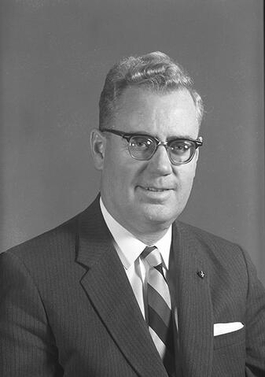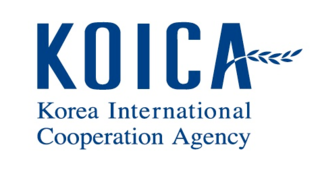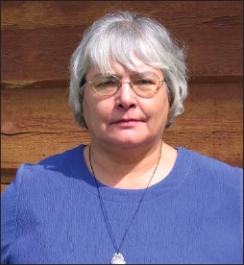
VSO is a not-for-profit international development organization charity with a vision for "a fair world for everyone" and a mission to "create lasting change through volunteering". VSO delivers development impact through a blended volunteer model consisting of international, national, and community volunteers working together to develop the systems and conditions for positive social change. In 2022–23, VSO worked in 35 countries in Africa and Asia.

John Francis Leddy, was a Canadian academic and President of the University of Windsor from 1964 to 1978.

Restless Development is a non-governmental organization which organizes volunteer placements for young people in the areas of civic participation, livelihoods and employment, sexual rights, and leadership. It operates in 74 countries in Africa and Asia, as well as the United States and United Kingdom.
Volunteers for Economic Growth Alliance (VEGA) was an umbrella group consisting of 23 economic development organizations that integrate highly skilled volunteers into programs. VEGA is usually contracted by United States Agency for International Development (USAID) for specific projects that involve one or more of the Member organizations. The organization was headquartered in Washington, DC and its members have offices around the world in developing/transitioning economies where USAID operates.
Human Rights Internet is a non-governmental organization (NGO), not-for-profit based in Ottawa, Canada. Its mission is twofold: to inspire education, advocacy, and dialogue in Canada; and, to document and disseminate information on human rights.
Australian People for Health, Education and Development Abroad (APHEDA), also known as Union Aid Abroad, is a non-government organisation of the Australian union movement. The non-government organisation was established in 1984 as the international aid agency of the Australian Council of Trade Unions. APHEDA was initiated in the pursuit of global justice through “stronger union and social movements, sustainable development programs, global solidarity and support in times of crisis” in Southeast Asia, the Pacific, the Middle East, South Africa and the Caribbean. APHEDA is also a registered charity with the Australian Charities and Not for Profits Commission.

CANADEM is an Ottawa based non-profit, government-related organization established in 1996 with funding from Global Affairs Canada. Its main purpose is to bolster peace, order, and good governance efforts by connecting international agencies to civilian experts. Originally designed as Canada's national roster of civilian experts, CANADEM is now the largest roster of screened international civilian experts in the world. This non-profit Roster of International Experts enables international agencies, governments, and other non-profit organizations to rapidly connect with qualified professionals. The U.S. State Department's Office for Reconstruction and Stabilization lists CANADEM as one of its International Partners in peacebuilding.
NetCorps was a volunteer-organizing coalition consisting of nine Canadian non-governmental organizations (NGOs), funded by the Canadian International Development Agency (CIDA) and managed by the NetCorps coordination unit. Through the program, the organizations created international information and communication technologies (ICT) internships in developing countries around the world. Interns typically participated in six-month programs, leaving between August and November for host organizations in the placement countries. Positions were limited to 19–30-year-old Canadian citizens or landed immigrants who had "appropriate information and communication technologies skills". Typical duties included creating webpages, developing databases, computer networking, setting up hardware, preparing manuals and other documentation, and general-to-advanced computer instruction.
Youth Challenge International (YCI) is a youth-centered, non-profit, non-religious, non-governmental organization focused on international development issues. It aims to equip developing country youth with skills and resources to contribute positively to their communities along with engaging Canadian youths in international development and social justice issues. Over 201 Canadian youth volunteer overseas annually with YCI.
The Forum of Federations is an international organization based in Ottawa, Ontario, Canada. It develops and shares comparative expertise on the practice of federal and decentralized governance through a global network. The Forum and its partners comprise a global network on federalism.

The Korea International Cooperation Agency was established in 1991 by the Ministry of Foreign Affairs of South Korea as a governmental organization for Official Development Assistance (ODA). KOICA's goal is to enhance the effectiveness of South Korea's grant aid programs for developing countries by implementing the government's grant aid and technical cooperation programs. KOICA is led by three-year-term president of the board who is appointed by the President upon the recommendation of Foreign Minister.
Crossroads International is a Canadian international development organization based in Toronto and Montréal. Funded partly by the Canadian International Development Agency (CIDA), Crossroads is dedicated to advancing the rights of women and girls and reducing poverty in West Africa, Southern Africa, and Bolivia.
International Citizen Service (ICS) is a global volunteering programme. It is aimed at young people aged 18-35 and supports them on 12-week long sustainable and locally-owned volunteering placements focused on working towards the Sustainable Development Goals.
International volunteering is when volunteers contribute their time to work for organisations or causes outside their home countries. International volunteering has a long association with international development or environment, with the aim of bringing benefits to host communities. It can include a range of services, from healthcare advancement to economic development to governance.
Digital Opportunity Trust (DOT) is a Canadian non-profit organization that provides technology, entrepreneurship, and leadership training programs for young people around the world.

Anita M. Vandenbeld is a Canadian politician, who was elected to represent the riding of Ottawa West—Nepean for the Liberal Party of Canada in the House of Commons of Canada in the 2015 Canadian federal election. She was re-elected in the same riding in 2019, and re-elected in 2021. Vandenbeld currently serves as Parliamentary secretary to the Minister of International Development.
Foreign aid for gender equality in Jordan includes programs funded by governments or non-governmental organizations (NGOs) that aim to empower women, close gender based gaps in opportunity and experience, and promote equal access to education, economic empowerment, and political representation in the Hashemite Kingdom of Jordan.

Marie Smallface Marule was a Canadian academic administrator, activist, and educator. She served as executive director of the National Indian Brotherhood (NIB), chief administrator of the World Council of Indigenous Peoples (WCIP), and secretary of the Indian Association of Alberta. Marule was president of Red Crow Community College for two decades, and led the creation of several indigenous studies programs. She was previously an assistant professor of Native American studies at the University of Lethbridge.

Marlene Green was a Canadian community activist, educator, and NGO field worker. She is best known as the founder of the Black Education Project, a volunteer-run organization created to address racial inequalities in Toronto's education system.
Rebecca Tiessen is a Canadian academic whose work focuses on international development and gender. She assisted Global Affairs Canada in developing tools to measure the effectiveness of development projects. Her work typically evaluates whether development strategies utilized by bureaucracies can be transformational or whether change within systems is hampered and requires an outside structure to be effective. She served as chair of international development studies and director of the Centre for African Studies in Halifax, Nova Scotia at Dalhousie University from 1999 until 2007. That year, she became an associate professor of sociology at the Royal Military College of Canada in Kingston, Ontario. She joined the faculty of the University of Ottawa in 2013 and is currently a full professor and director of their Gender, Peace, and Security Collaboratory.








